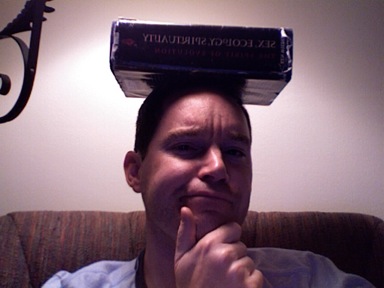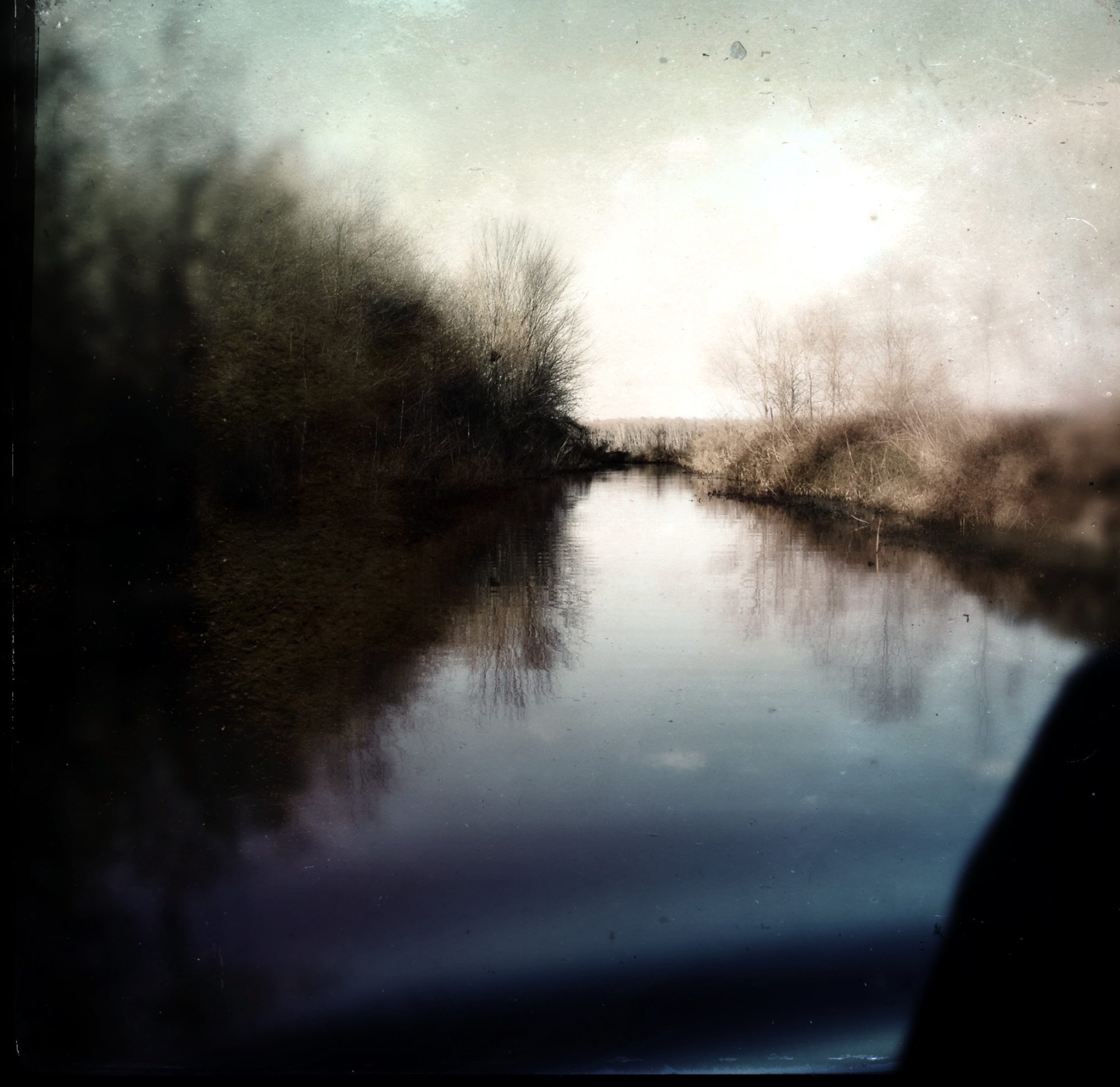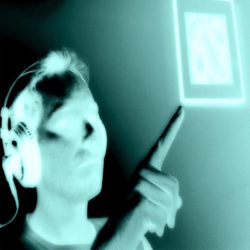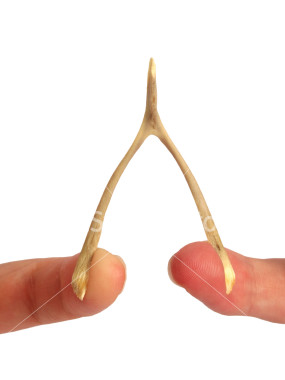
Preamble:
Holy shit, was this essay a head-trip — and a head-ache! I so wanted to walk the talk like Hokai did, or launch into a spontaneous riff that would convey the essence of my perspective melodically, embodying the very Integrative Spirit I so long to embrace…
However…
Breakfast at Tiffany’s:
Last night I picked up my guitar and inexplicably broke into “Breakfast at Tiffany’s,” the mid-nineties hit from Deep Blue Something. I was killing time waiting for my wife to finish brushing her teeth and whatnot. She heard my rendition and started to sing along. Next thing you know we’re in the way-back machine, trying to remember that Blues Traveler song, you know, the one that was such a big hit. “No, not the ‘Hook’ song, the other one, the one that came out before that.” It was right on the tip of my tongue, and I’d only just begun to wrack my brain for the answer when my wife said, “Hold on, I’ll just Google it.” Ten seconds later, the issue was settled, but I wasn’t. It occurred to me that my reliance on Google was messing with my ability to access my long-term memory. Hec, in twenty years I might have to Google my own name to remember who’s looking back at me in the mirror.
This experience is just the latest reminder that everything I do has an impact on the way I am, and that the way I am places limits on what I’m able to do, and then round and round I go forming a pattern that becomes my way of life. Come to think of it, it’s pretty mind-blowing to fathom, that something as seemingly trivial as Googling can, overtime, literally change the structure of my brain. Use it or lose it baby, and no matter if we’re talking muscle, bone, vision, hearing, or cortical neural networks, there’s no doubt that how we live literally changes who we are. It’s downright freaky, the sheer sense of responsibility.
The understanding here is that human beings, like all forms of life, are functionally malleable. That is to say, we continually adapt to the givens of our environmental situation, which for us includes a cultural dimension. The plasticity of our organisms, especially our central nervous systems, allows for the possibility, the inevitability really, of continual change as we flex and flow in dynamic relationship with ourselves, culture and nature. What’s also unbelievably mind-blowing to me is how this simple, commonsense understanding of the somatic foundations of personal transformation is so conspicuously absent from contemporary discourse in fields as far-reaching and diverse as medicine, psychology, and spirituality. That, in a nutshell, is my intention here, to show how a functional, somatic, experiential perspective can give an Integrative Spirituality some ground to stand on.
Who’s gonna do what now?
In the discussion following his amazing post, Hokai cut right to the chase by asking: “What is it that we integrate in integrative spirituality?” The question presupposes a dis-integration or lack of unity, a state of fragmentation or at least chaotic differentiation. For me, the integral impulse is primarily a movement toward the direct experience of integrity, a movement from a sense of alienation and disconnect to one of authenticity, conviviality and freedom. It’s about moving from developmental arrest to realization of our full potential as humans.
The rubber meets the road in the immediacy of my directly felt experience, right now, and integrity is embodied, lived out, expressed in my actions on a daily basis. Julian mentioned yesterday that “so far the theme of the symposium is turning out to be the importance of practice as a way to ground spirituality in reality…” This practical dimension is, in fact, what interests me most, and I will get to the nitty-gritty of my practice shortly. However, since I ground my understanding of integrative spirituality in terms of embodiment, somatic awareness, and movement, I need to be clear on some theoretical issues, lest I get buried in an avalanche of AQAL objections.
For my money, an integrative spirituality is a transformative spirituality, and as such it must get to the roots of our being. Wilber has consistently claimed that the centaur level — where “mind and body are experienced as an integrated self” – is the jumping off place from the realm of the personal to the transpersonal. In Sex Ecology Spirituality, he went as far as to herald the centaur as “the next major stage of leading-edge global transformation.” I agree with this completely, and would add that an integrative spirituality can be neither grounded nor optimally transformative without presupposing a firm centauric foundation, i.e. a certain degree of bodymind integrity.
As to the question “What transforms?” in the process of personal transformation, I’d say, well, “the person,” which at the centaur stage can be thought of as the bodymind or organism. This is a philosophical rabbit-hole I’d rather not go down here, but I should add an important caveat from Alan Watts: “Man is not so much an organism in an environment as an organism-environment relationship. The relationship is, as it were, more real than its two terms, somewhat as the inner unity of a stick is more solid than the difference of its two ends.” So, more precisely, I would say that personal transformation is about transforming one’s way of life, the mode from which a person experiences and participates in life. The point of all this being that most of us cannot continue to grow optimally or live fully without first and foremost understanding, accepting and effectively responding to the reality of dissociation and alienation. Of course, maybe I’m the only one with unfinished dissociative business to clear up, but I doubt it. In any event, there’s not much point in building more and more stories onto a building if the foundation is not properly in place.
It is the lack of a smoothly integrated, firm foundation — in our ways of thinking, acting and in the very cores our being – that, in my opinion, accounts for the confusion and inadequacy that characterizes so much of contemporary spiritual discourse. I stress the notion of embodiment because I think it is too often glossed over that we experience life in, through and as embodied organisms, bodyminds that are typically plagued with habitual patterns of constriction. These constrictions are embedded in the very structure of our bodies and nervous systems, giving rise to a sense of dissociation and alienation, which in turn gets expressed in distorted perception, thought and action.
Given the right conditions, development happens of its own accord. An acorn will rather effortlessly become an oak tree, so long as there’s rich soil, adequate water and light, and so on. Throw an acorn in your closet, however, and it will only dry up and crumble into dust. I see human development in much the same light. It requires a healthy relationship with our environment, which for human beings has both natural and cultural dimensions. In fact, as Watts reminded us, this relationship is as much “what we are” as anything.
Enter the somatic perspective, my understanding of which is grounded in the work of my mentors in the field, Don Hanlon Johnson and Thomas Hanna.
Alienation vs. authenticity:
Johnson describes how the dissociative fabric of contemporary culture is sewn into individual lives through a “technology of alienation,” whereby beliefs and non-verbal body-shaping techniques are etched into our brains and bodies. This process leaves us cut off from the sources of knowing necessary for full living and continued growth. Since we respond to all situations as embodied beings, losing touch with the immediacy of felt experience will render us unable to perceive the subtle changes that allow us to sense whether a situation is likely to enhance or diminish the quality of our lives. To the degree we lack a firm sense of embodiment, we are ignorant of how to live situations in an authentic way.
Authenticity, as Johnson points, originally meant “to have a sense that one’s actions and feelings are one’s own.” When one is firmly grounded in the integrated centaur, one has access to a “sensual authority,” a mode of awareness and expression rooted in the self-directing, self-regulatory capacities of the healthy, non-constricted organism. It is the technology of alienation that arrests further development, keeping us stuck with a sense of void between my “mind” and my “body,” between “me” and “the world.” Lacking contact with our sensual authority, we look outside ourselves for some basis on how to live our lives. We give doctors authority over our bodies, psychologist authority over our minds, and religious leaders authority over our spirits. Unfortunately, the current discourse in all those fields mostly perpetuates the status quo of an unnecessarily pathological degree of dissociation and alienation. The shift from alienation to authenticity requires that we develop our impoverished self-sensing capacities and that we learn to check the dictates of outside authorities against this growing base of awareness.
Practice, practice, practice…
The processes that work to shape people into alignment with societal agendas, that lead to experiences of bodymind dissociation, influence people’s lives only to the extent that human beings are, like I mentioned above, functionally malleable. In contrast to the technology of alienation, which takes advantage of this malleability to undermine people’s sensual authority, Johnson described another way of integrating techniques, one that encourages people to develop and connect to their unique store of embodied wisdom. Johnson calls this alternative “the technology of authenticity”.
The many technologies of authenticity (including experiential psychotherapy, Gendlin’s “focusing” process, various somatic approaches, and many forms of mindfulness meditation) are practical strategies that: (1) facilitate the recovery and further development of an individual’s inherent self-sensing capacities (i.e. one’s sense of embodied authority), and (2) provide an environment or context where authentic expression of this newly expanded awareness can be explored, supported and encouraged.
Hokai delivered a great quote from Wilber’s One Taste: “There are four major stages of spiritual unfolding: belief, faith, direct experience, and permanent adaptation: you can believe in Spirit, you can have faith in Spirit, you can directly experience Spirit, you can become Spirit…. If you are interested in genuine transformative spirituality, find an authentic spiritual teacher and begin practice. Without practice, you will never move beyond the phases of belief, faith, and random peak experiences. You will never evolve into plateau experiences, nor from there into permanent adaptation. You will remain, at best, a brief visitor in the territory of your own higher estate, a tourist of you own true Self.”
This is a brilliant way to frame the process of personal transformation, I think. My own core practices [the specifics of which I’ll save for another conversation] stem from a set of principles that I apply to as many life situations as possible. This is a slightly different take on the concept of Integral Life Practice, in that instead of gathering a variety of existing approaches and techniques together for the purposes of “cross-training” or “exercising” various levels of my being and whatnot, my approach has been to explore, understand and experiment with the essential principles that seem to be operative during any and all my transformative or peak experiences, regardless of the context. I like the distinction Don Hanlon Johnson makes between principles and techniques. Whereas an emphasis on particular techniques can encourage imitation, repetition, and an over-reliance on those considered to be experts, principles are fundamental sources of discovery that encourage open-ended inquiry and can generate creative strategies for approaching unique situations.
Principles of personal transformation:
Alan Watts said: “The way in which we interpret mystical experience must be plausible. That is to say, it must fit in with and/or throw light upon the best available knowledge about life and the universe.” Understanding and incorporating the somatic dimension does not mean that all we need to do is bodywork or focus on our feelings. We do, I think, need to understand how all aspects of life and culture play out on a somatic level, simply because the living body, in its structural and functional aspects, is fundamental to transformation as it unfolds on deeper (or more significant, in Wilber’s scheme) levels, such as the psychological and spiritual.
Here’s how I understand the relationships, in a nutshell [and I am now forced, due to the onset of bedtime, to rely on a previous piece Julian forced out of me called The Embodiment of Freedom, which explicates the somatic/experiential perspective in much more detail than space here will allow]: If we want to ground our understanding of transformation in the living body, we can start with the most fundamental aspect of the central nervous system — the division between sensory and motor processes. Our perceptions of the world outside our bodies, as well as our perceptions of our internal bodily states, come into the brain via sensory nerves. And every action we express, every movement we make in the world and inside our selves flows out from our brain and down through the spine by way of motor nerves. This structural division is functionally integrated within a single neural system, the brain integrating the incoming sensory information with outgoing commands to the motor system.
The continual interplay of sensory information and motor guidance is referred to in contemporary neuroscience as a feedback system which operates in loops. As Hanna describes it, “the sensory nerves ‘feedback’ information to the motor nerves, whose response ‘loops back’ with the movement commands along the motor nerves. As movement takes place, the motor nerves ‘feedback’ new information to the sensory nerves.” Hanna argues that many of the problems afflicting people today are not about bodies or minds breaking down, but about individuals who have lost conscious control of their somatic functions. These functional problems are ones in which the person suffers from a loss of memory: the memory of what it feels like to move in certain ways, and the memory of how to go about moving in certain ways. This type of memory loss is what Hanna calls sensory-motor amnesia, a state of diminished self-awareness that is quite reversible–that is to say, a state that can be transformed.
Hanna describes the loss of conscious volitional control as sensori-motor amnesia so as to emphasize two essential facts: 1) habituated, involuntary responses, like all somatic processes, are a reflection of sensori-motor functioning, and 2) what becomes unconscious, forgotten, or unlearned, can become conscious again, remembered, and re-learned. Thus, sensori-motor amnesia can be reversed by somatic learning.
Somatic learning is a process that results in the expansion of an organism’s range of volitional consciousness. This process takes advantage of the feedback/loop nature of the sensori-motor system and is described by Hanna in the following way: “If one focuses one’s awareness on an unconscious, forgotten area of the soma, one can begin to perceive a minimal sensation that is just sufficient to direct a minimal movement, and this, in turn, gives new sensory feedback of that area which, again, gives a new clarity of movement, etc. This sensory feedback associates with adjacent sensory neurons, further clarifying the synergy that is possible with the associated motor neurons. This makes the next motor effort inclusive of a wider range of associated voluntary neurons, thus broadening and enhancing the motor action and, thereby, further enhancing the sensory feedback. This back-and-forth motor procedure gradually ‘wedges’ the amnesic area back into the range of volitional control: the unknown becomes known and the forgotten becomes relearned.”
So it is that a diminished state of self-awareness and a diminished range of conscious responsiveness can expand and transform at the basic level of sensor-motor functioning. It is my contention that effective psychotherapy and transformative spiritual practices, as processes necessarily rooted in the central nervous system of the organism, are effective only to the degree they take advantage of the organism’s capacity for somatic learning. Psychologists from Carl Rogers to Eugine Gendlin have discovered as much, as have mindfulness meditation advocates like Alan Watts and Jon Kabat-Zinn.
The crux of the matter is thus: personal transformation is the movement that springs from authentic relationship, from embodied encounter. Transformation is the movement from alienation to authenticity; the movement toward progressively deeper and expanded levels of awareness and authentic expression. On the level of sensorimotor functioning we understand this transformation as the movement from sensorimotor amnesia to somatic learning. From a psychological perspective this transformation is the movement from psychological dis-ease to psychological growth and self-actualization, or from unconsciousness to consciousness, or from pathology to health. In terms of ecology we’re talking about the movement from ecological crisis to ecological balance in relation to the human species. Spiritual seekers might call it the movement from suffering to inner harmony and peace, or dissociation to integration, or ignorance to enlightenment. In all contexts, the same principles can be applied, and these principles can be understood to underlie a wide range of somatic/experiential practices designed to facilitate personal transformation, each understood in terms of particular contexts of relationship.
Deadlines and Deadends:
Thank you Julian for inviting me to carry this inquiry forward a little. Unless I’m responding to another person, in dialogue or with a set deadline, I seem incapable of doing this kind of thing. Death is the ultimate deadline, I suppose. Perhaps I need to meditate on that a while to motivate me to write the book that’s been rattling around in my head for years now.
Basically, this whole inquiry began when I became fascinated by my peak experiences. There seemed to be a quality about them that was not dependent on content or context. In other words I felt like the same process was happening regardless of what I was doing. I got the funny feeling that I was peaking or “peeking” into the same place, or entering the same state of consciousness, whether I was hitting a groove on the guitar, entering “the zone” on the athletic field, writing a poem or a song, having great sex, communing with nature on a hike, or getting showered with insight during meditation.
There is a way to live that opens me up and a way that shuts me down. For me, the whole process comes down to this: When I’m open (whether through luck, effort or grace), and I have the guts and faith needed to allow whatever form of self-expression that arises to unfold, then I open up more and feel more alive and connected. In my experience, this is the fundamental attitude that is a prerequisite for spiritual growth. On the other hand, when I choose, consciously or unconsciously, to inhibit this movement in favor of a habitual, conditioned response, I feel more and more cut off, and I contract again back into an unfulfilling daze.
Coda:
“My ego is a marriage between my (necessarily false) image or concept of myself, and the chronic muscular tension which a child learns in trying to do things which must happen spontaneously: to love, to sleep, to attend, to have bowel movements, and to control crying, pouting, or blushing. But muscular tension does not necessarily assist neural efficiency, for it hinders rather than helps when we strain our eyes to see and furrow our brows to concentrate. Yet we are forever scratching our heads, clenching our fists and jaws, holding our breath, and tightening our rectal muscles in order to will or to keep control of our feelings, and the vague persistence of this tension becomes the substantial referent of the word “I,” and the image the emotional and conceptual referent. A futility married to an illusion!” –Alan Watts





